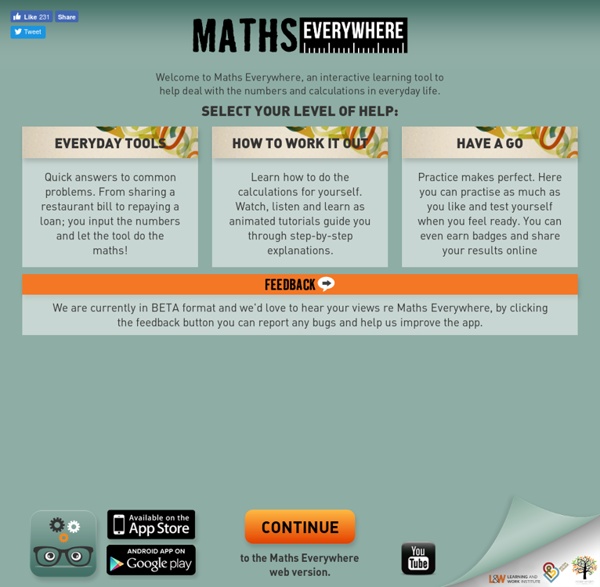Maths Everywhere

Numeracy teaching and learning materials
This set of materials is designed to provide an exemplar of teaching numeracy to adult learners, from Entry 1 to Level 2. Included are learner materials and teacher notes. All skills’ teaching is set within appropriate adult contexts: community, work, family or general interest. Teaching of skills is systematic and cumulative, covering all elements of the adult numeracy core curriculum. These materials will be of interest to a wide range of teachers in all settings, including Skills for Life, functional skills and key skills teaching and learning.
Numeracy Resources
Numeracy: Functional Maths, Functional Maths - number General: Exam tips and help Level: L1, L2 Resource type: Handout or guide, Revision material Top Tips for Maths tests is a handout/classroom resource that can be used as an activity or as a handout. It takes learners through the process of working out a complex Level 2 Maths question, with reference to how the marks can be gained, and the maths skills required to complete the question.
Mangahigh.com - Play maths, love maths
Related:
Related:



